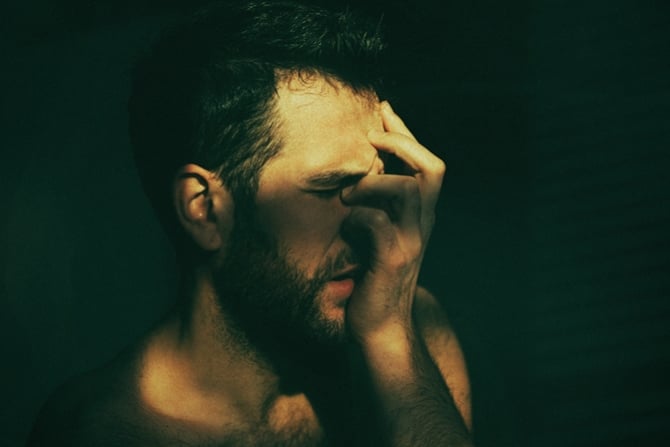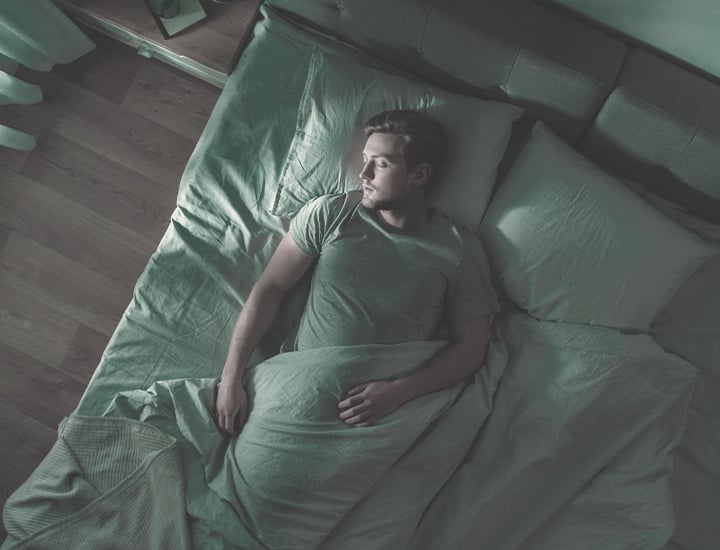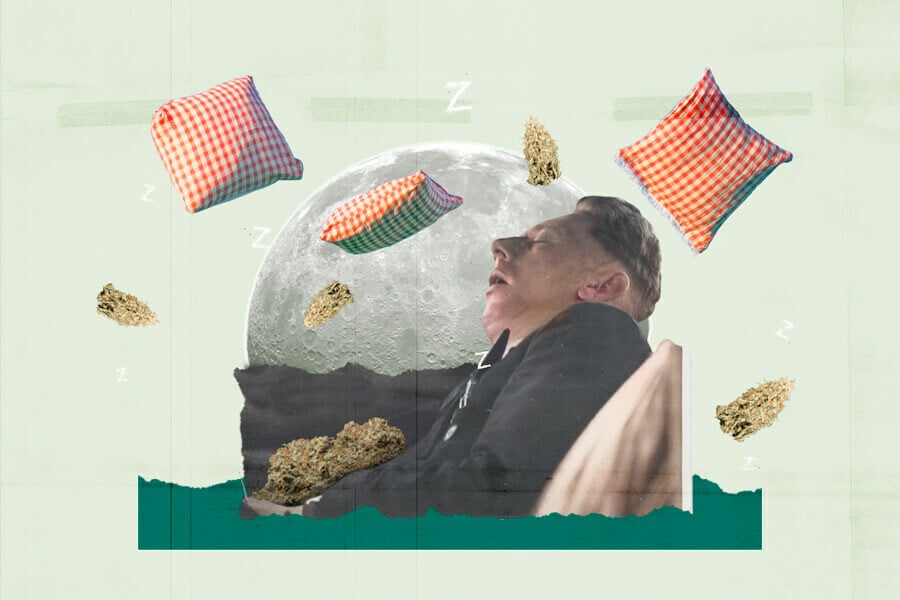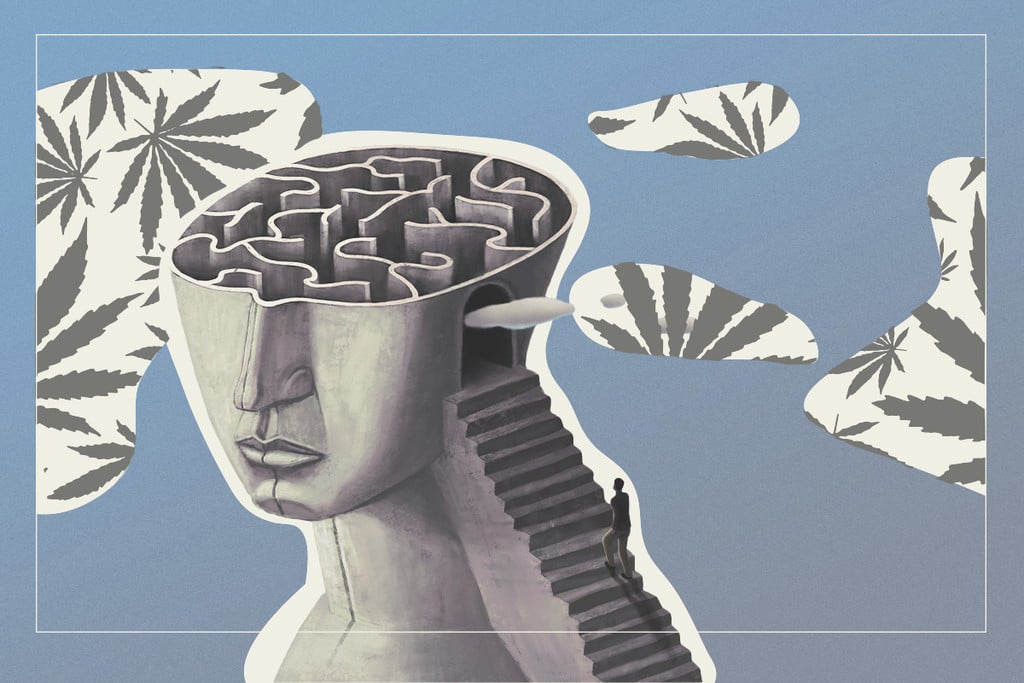.

Cannabis Withdrawal: What Is It And What Are the Symptoms?
Some stoners like to think there are no side effects whatsoever when smoking weed. However, cannabis withdrawals, like those from many other drugs, are a real concern. You can expect a fair amount of discomfort, but there are, thankfully, ways to alleviate it. Do you know enough about cannabis withdrawal and its symptoms? Read on to learn more.
Key Takeaways
- Stopping cannabis suddenly after frequent use can cause withdrawal symptoms, usually mild to moderate.
- Irritability, sleep problems, anxiety, and headaches are most common, peaking in the first two weeks.
- Withdrawal isn’t life-threatening and typically fades within a few weeks with healthy routines and support.
Contents:
We've spent a lot of time on this blog discussing the benefits of cannabis use.
It has a lot of relief and soothing sensations to offer, and many casual users don't run into any significant side effects. However, if you smoke especially often, you'll find that the days you spend without it are especially uncomfortable. We're talking, of course, about cannabis withdrawal.
You may be more used to hearing about withdrawal from opioids, alcohol, and the like, but negative physiological and mental sensations that arise from quitting weed are notable in their own way. It may not be as uncomfortable as quitting those other aforementioned substances, but it's still worth knowing what you'll endure and how you can relieve the issues.
What Is Cannabis Withdrawal Syndrome?
Whether it’s exercise, sweets, or drinking six cups of extra strong coffee a day, your body will get used to anything you do or consume regularly. Take that away suddenly, and your body will, expectedly, be in a state of shock and start acting up in turn.
Chronic cannabis users, as you may be disappointed to discover, aren’t exempt from experiencing similar withdrawal symptoms. An abrupt halt after a period of chronic use often leads to repercussions that affect the individual’s physical, emotional, and behavioral well-being.
Cannabis withdrawal syndrome (otherwise known as CWS) is classified as a mental disorder. But is it as detrimental as the withdrawal symptoms from other substances like cocaine, alcohol, and opioids?
Sure, the symptoms can weaken you and mess with your head, but none of them lead to life-threatening consequences.
What Causes Cannabis Withdrawal?
But what, exactly causes these withdrawal symptoms in the first place?
Well, even if you aren't very familiar with the herb, there's a good chance you’re familiar with THC. It is, of course, the primary psychoactive component of marijuana. As you increase your consumption, say, from once a month to every night, your brain develops a stronger tolerance to THC.
At that point, to a certain extent, your body is dependent on the THC to function. If we’re going to be scientific here, this process can be described as the CB1 receptors in the central nervous system (specifically the endocannabinoids system) becoming desensitized after repeated interactions with the same substance. In turn, since these receptors handle many more responsibilities outside of processing cannabis, some functions in the brain are altered over time.
However, the same can’t be said with cannabidiol (a.k.a CBD). It has no psychotropic effects, unlike THC, and doesn't directly interact with the endocannabinoid receptors, either. Considering that, it's fairly understood that even daily usage likely won’t give you these problems.

Cannabis Withdrawal Symptoms
Here are some of the symptoms that people experience whenever they go through marijuana withdrawal symptoms.
These are usually mild episodes of physical and emotional disturbances, but professional help may be required if they persist and worsen.
- Irritability: It starts off as mild annoyance, but can escalate to irrational aggression. This is one of the first symptoms that people experience when they start going through withdrawal.
- Sleep troubles: Chronic marijuana users who suddenly quit often experience sleep problems like insomnia, vivid nightmares, and night sweats.
- Headaches: Intense headaches are part of the list of marijuana withdrawal symptoms. It usually begins about three days after quitting and may last for the next week or two.
- Flu-like symptoms: You’ll get the usual profuse sweating accompanied by fever and chills.
- Anxiety and depression: Feelings of paranoia along with continuing sadness and sudden loss of interest in daily activities are part of the list of symptoms.
How Long Do Cannabis Withdrawal Symptoms Last?
The length of time in which people go through stages of withdrawal varies from one person to another.
The worst of these symptoms usually shows up within the first two weeks after the person dropped cannabis use from their regular routine.
Now, to give you an idea, here is a rough timeline of what happens within and after that two-week period.
|
Week 1 |
Physical and mental weariness begins to take effect. The episodes of irritability usually come first, followed by anxiety and sleeping problems. |
|
Week 2 |
Withdrawal symptoms are at their peak during this time, particularly during the ten-day mark. For some who were especially chronic users, the headaches and flu-like symptoms will begin to kick in. |
|
Week 3 |
During this time, the affected person will begin to feel their symptoms decline. The discomfort begins to fade, and they’re able to slowly return to their normal routines. |
|
Week 4 |
Just like how the lungs return to full health after a long period without smoking, the brain's cannabinoid receptors will go back to functioning normally with time. By that fourth week, all withdrawal symptoms should have dissipated. |
|
Week 1 Physical and mental weariness begins to take effect. The episodes of irritability usually come first, followed by anxiety and sleeping problems. |
|
Week 2 Withdrawal symptoms are at their peak during this time, particularly during the ten-day mark. For some who were especially chronic users, the headaches and flu-like symptoms will begin to kick in. |
|
Week 3 During this time, the affected person will begin to feel their symptoms decline. The discomfort begins to fade, and they’re able to slowly return to their normal routines. |
|
Week 4 Just like how the lungs return to full health after a long period without smoking, the brain's cannabinoid receptors will go back to functioning normally with time. By that fourth week, all withdrawal symptoms should have dissipated. |
Can Cannabis Withdrawal Cause Psychosis?
One of the earlier pieces of propaganda against cannabis was about its alleged effect on a person’s mental health.
In fact, this one study in 2007[1] points to previous research claiming that 1 in 4 cannabis users are at high risk for developing schizophrenia “or a related psychotic disorder.” For those who intend on dabbling with weed for the first time, this isn’t very encouraging information.
So, is it really as alarming as it sounds? This most recent study on the topic, conducted in 2017[2], says otherwise. To be specific, it claims that prolonged cannabis use can lead to “light to moderate” withdrawal symptoms that affect a person’s mood and behavior. At worst, you might need some outpatient care to deal with the discomfort, but nothing beyond that. Other than that, there was no evidence of cannabis directly leading to those sorts of mental disorders.
Really, the only time that someone would need inpatient care due to chronic cannabis use or withdrawal would be if they had a pre-existing mental condition. Even then, in some cases, some extensive outpatient care would suffice.
Now, for CWS to completely vanish, you'll need to fully abstain from cannabis and pretty much any other stimulating substance. So, for example, if you replace your cannabis use with tobacco and alcohol, there’s a good chance your condition would worsen, and you'd likely end up using cannabis at the same rate you were beforehand.
How to Prevent and Manage Cannabis Withdrawal
They say prevention is better than cure, but it also pays to know the measures to take to alleviate any unpleasant symptoms of a specific condition.
Well, dear reader, you’re in luck! We’ll provide you with solutions for preventing cannabis withdrawal, and give you some ideas on what you can do if you’re already experiencing it.
Here are some ways you can prevent the dreaded CWS. If you stick to these tips, the first 72 hours of your life after chronic use should be a lot less bumpy.
-
Keep Yourself Hydrated
Water is life, as they say; given that our bodies are made from 60–63% (young male adult) of H₂O, it just goes to show how necessary it is for our survival and well-being.
You’d want to drink around 12 cups per day once you cut out cannabis from your life. Sugary and caffeinated drinks aren’t advisable at this point, as they can dehydrate you and leave you having a worse time, so you may want to do away with sodas and lattes.


-
Sweat it Out
There’s more than enough research material online to educate you on the benefits of regular exercise. Sure, wanting that beach body all-year-round is a part of it; however, in this case, it should help release the build-up toxins from prolonged cannabis use.
Allot at least 30 minutes per day for exercise. It can be any workout of your choice, but be sure to have fun with it to make it worth your while.

-
Eat Healthier
Sure, a generous serving of burgers, fries, pizza, and ice cream can be satisfying to the palate, but you can expect to feel more sluggish and irritable if you keep that up enough. If you’re already going through marijuana withdrawal, that will only worsen what you’re going through.
So, for the time being, you can substitute that with fresh fruits and vegetables, along with some lean meat. Along with that, if you find the right recipe online, you’ll realize that good eating isn’t always a dull and miserable experience.


-
Practice relaxation techniques
As we mentioned, anxiety is one of the main symptoms of cannabis withdrawal. There are many ways to combat it, yes, but practicing relaxation techniques is one of the most tried, true, and simple strategies.
It can be especially effective if you practice it in the context of mindfulness meditation. For those who aren't familiar, that just refers to meditation you perform with the intent of focusing on the moment, rather than thinking of past incidents or future possibilities. All you’ll need is ten minutes per day to sit still and quiet the mind. Along with helping you focus on the moment in general, the practice will teach you to be aware of when anxiety arises, then help you let go of it at a gentle yet quick pace.

-
Improve Sleep Rituals
Getting a healthy amount of good quality sleep is another way to cope with withdrawal symptoms. Like mindfulness meditation, improving your sleep rituals takes practice by building a routine around it.
An effective way to start is by sleeping around the same time every night. It will help normalize your body’s circadian rhythm, meaning it'll have a sense of when to wake up and when to prepare for sleep. This adjustment, in turn, will gradually improve your sleeping habits.

-
Seek Help From People Around You
Your friends, loved ones, and close kin will always be there to provide support, whether physically or emotionally. So, if you do need help at some point, don’t hesitate to ask.
It helps to have positive people around to help you get through this struggle.
Combating Cannabis Withdrawal
Depending on the severity of your situation, the cannabis withdrawal symptoms you’ll go through will vary. It’ll either be a walk in the park, an uphill battle, or a challenging hike that lands somewhere in between.
Regardless of what the experience may be, you’ll need a good amount of willpower to recuperate. Just keep these tips in mind, you’ll slowly but surely pull through.
- Reefer madness https://www.ncbi.nlm.nih.gov
- The cannabis withdrawal syndrome: current insights https://www.ncbi.nlm.nih.gov






































